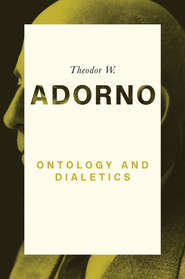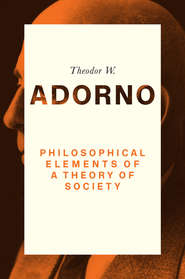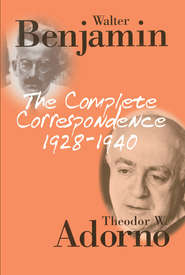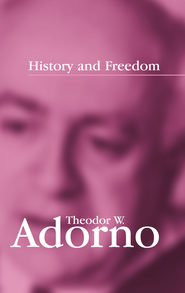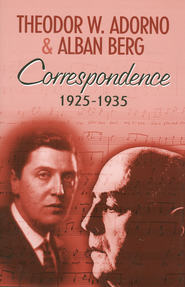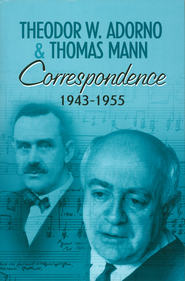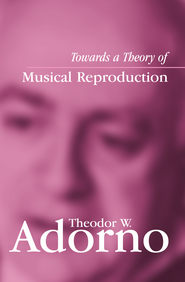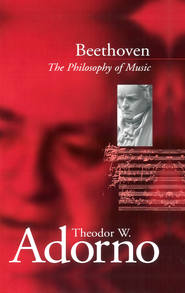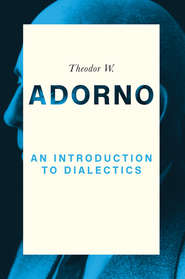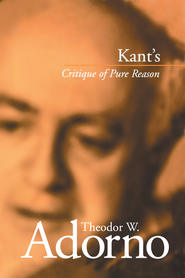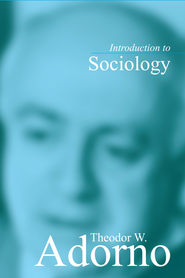Theodor W. Adorno
Книги автора: Theodor W. Adorno
Adorno’s lectures on ontology and dialectics from 1960–61 comprise his most sustained and systematic analysis of Heidegger’s philosophy. They also represent a continuation of a project that he shared with Walter Benjamin – ‘to demolish Heidegger’. Fo…
Adorno’s lectures on ontology and dialectics from 1960–61 comprise his most sustained and systematic analysis of Heidegger’s philosophy. They also represent a continuation of a project that he shared with Walter Benjamin – ‘to demolish Heidegger’. Fo…
As an exile in America during the War, Theodor Adorno grew acquainted with the fundamentals of empirical social research, something which would shape the work he undertook in the early 1950s as co-director of the Frankfurt Institute for Social Resear…
As an exile in America during the War, Theodor Adorno grew acquainted with the fundamentals of empirical social research, something which would shape the work he undertook in the early 1950s as co-director of the Frankfurt Institute for Social Resear…
The surviving correspondence between Walter Benjamin and Theodor W. Adorno. This is the first time all of the surviving correspondence between Adorno and Benjamin has appeared in English. Provides a key to the personalities and projects of these two …
The surviving correspondence between Walter Benjamin and Theodor W. Adorno. This is the first time all of the surviving correspondence between Adorno and Benjamin has appeared in English. Provides a key to the personalities and projects of these two …
Despite all of humanity's failures, futile efforts and wrong turnings in the past, Adorno did not let himself be persuaded that we are doomed to suffer a bleak future for ever. One of the factors that prevented him from identifying a definitive plan …
Despite all of humanity's failures, futile efforts and wrong turnings in the past, Adorno did not let himself be persuaded that we are doomed to suffer a bleak future for ever. One of the factors that prevented him from identifying a definitive plan …
Adorno was twenty-one years old when he traveled to Vienna in March 1925 to study musical composition with Alban Berg. Twenty years later, Adorno wrote: «how much of my writing will remain is beyond my knowledge or my control, but there is one claim …
Adorno was twenty-one years old when he traveled to Vienna in March 1925 to study musical composition with Alban Berg. Twenty years later, Adorno wrote: «how much of my writing will remain is beyond my knowledge or my control, but there is one claim …
In December 1945 Thomas Mann wrote a famous letter to Adorno in which he formulated the principle of montage adopted in his novel Doctor Faustus. The writer expressly invited the philosopher to consider, with me, how such a work and I mean Leverkhns …
In December 1945 Thomas Mann wrote a famous letter to Adorno in which he formulated the principle of montage adopted in his novel Doctor Faustus. The writer expressly invited the philosopher to consider, with me, how such a work and I mean Leverkhns …
At the beginning of his career in the 1920s, Adorno sketched a plan to write a major work on the theory of musical reproduction, a task he returned to time and again throughout his career but never completed. The choice of the word reproduction as op…
At the beginning of his career in the 1920s, Adorno sketched a plan to write a major work on the theory of musical reproduction, a task he returned to time and again throughout his career but never completed. The choice of the word reproduction as op…
Beethoven is a classic study of the composer's music, written by one of the most important thinkers of our time. Throughout his life, Adorno wrote extensive notes, essay fragments and aides-memoires on the subject of Beethoven's music. This book brin…
Beethoven is a classic study of the composer's music, written by one of the most important thinkers of our time. Throughout his life, Adorno wrote extensive notes, essay fragments and aides-memoires on the subject of Beethoven's music. This book brin…
This volume comprises Adorno's first lectures specifically dedicated to the subject of the dialectic, a concept which has been key to philosophical debate since classical times. While discussing connections with Plato and Kant, Adorno concentrates on…
This volume comprises Adorno's first lectures specifically dedicated to the subject of the dialectic, a concept which has been key to philosophical debate since classical times. While discussing connections with Plato and Kant, Adorno concentrates on…
Kant is a pivotal thinker in Adorno's intellectual world. Yet although he wrote monographs on Hegel, Husserl and Kierkegaard, the closest he came to an extended discussion of Kant are two lecture courses, one concentrating on the Critique of Pure Rea…
Kant is a pivotal thinker in Adorno's intellectual world. Yet although he wrote monographs on Hegel, Husserl and Kierkegaard, the closest he came to an extended discussion of Kant are two lecture courses, one concentrating on the Critique of Pure Rea…
This book provides an invaluable introduction to his historical and conceptual engagement with sociology.
This book provides an invaluable introduction to his historical and conceptual engagement with sociology.


